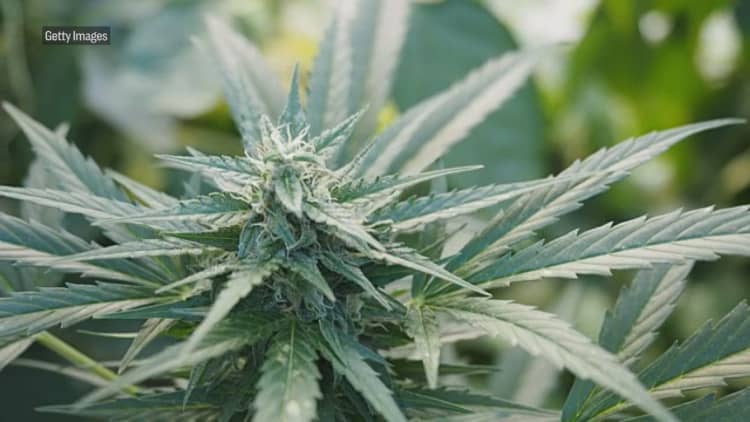
Marijuana is becoming less taboo among leaders in Washington.
On Friday, on the unofficial marijuana holiday known as 4.20, Senate Minority Leader Chuck Schumer announced a plan to decriminalize marijuana at the federal level. The New York Democrat's support gives the policy a powerful voice as opinions on the substance become more favorable with voters and within the ranks of Congress.
Schumer plans to introduce a bill to pull marijuana from the federal list of controlled substances, aiming to effectively reduce punishments related to the drug and encourage more efforts to legalize it at the state level. The legislation would not stop federal law enforcement from stopping the movement of marijuana between states where it is legal and areas where it is not.
It marks a reversal on marijuana for the Senate's top Democrat, as opinions on the substance have evolved across the political spectrum.
"The time has come to decriminalize marijuana," Schumer said in a statement. "My thinking — as well as the general population's views — on the issue has evolved, and so I believe there's no better time than the present to get this done. It's simply the right thing to do."
The senator also said the bill would seek to boost funding for marijuana businesses owned by women and minorities. Minority communities have been disproportionately affected by drug arrests and prison time.
Schumer's effort likely will get support from many Democrats and some Republicans in the GOP-controlled Senate. Whether it can gain any traction in the more conservative House is less certain.
But his policy will likely face opposition from the nation's top law enforcement official. Attorney General Jeff Sessions, a noted opponent of marijuana use, in January pulled back Obama administration guidance that allowed states to legalize marijuana with minimal interference from federal officials. President Donald Trump then promised this month that he will support pushes from lawmakers like Sen. Cory Gardner, R-Colo., to shield states that have legalized the substance.
Nine states and the District of Columbia have legalized marijuana for recreational use. Even more states have decriminalized the substance to some degree or allowed medical use. Some lawmakers support the ability of states to craft their own marijuana laws but do not back federal policy to decriminalize or legalize.
Lawmakers in support of legalization have cheered the increased tax revenue states have seen, as well as the potential for job creation.
A Gallup survey in October showed 64 percent of Americans think marijuana should be legal. A majority of Republicans think it should be legal, according to Gallup.
One former congressional leader also said his view on marijuana has "evolved" recently. Former House Speaker John Boehner said this month he will join the board of directors for a marijuana holdings company.


